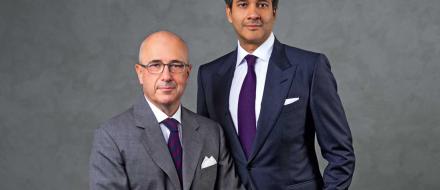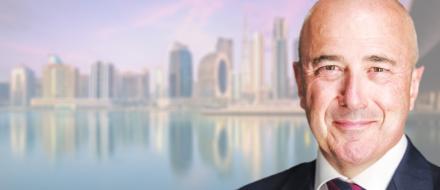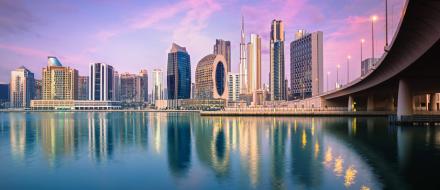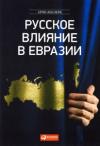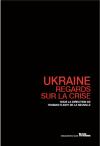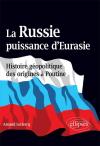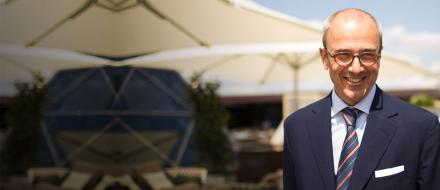Embracing common values
Arnaud Leclercq, partner holgind privé and head of new markets, Lombard Odier and Soumaya Hissoussi, senior vice president, Lombard Odier representative office Dubai on how the bank's sustainable DNA powered their move into islamic finance.
What do you think differentiates Lombard Odier from other operators in the same space?
Arnaud: I would say that in the private banking landscape we are unique in who we are and what we do. lf you look at me combination of factors that make us different, when you put all the individual elements together, we are certainly very different. To define the differences, we use both the verb 'to be' and the verb 'to have'. Who are we, and what do we stand for? Too often, institutions define themsetves to prospects and clients by what they have (e.g, 'We have this product, we have an office in Singapore or Dubai'). By doing this they neglect to explain the principles they stand for and what's in their DNA.
At Lombard Odier we start with who we are. ln order to build a strong relationship with our clients, it is essential that we make this connection as human beings. We are the oldest private bank in Geneva and have always had a focused business model.
This means we are unrivalled experts at advising our clients and helping them protect and grow their wealth. As a firm, we have no external debt and are proud to have one of the highest capital ratios in the industry, and an AA- Fitch rating. We were among the first signatories of the United Nations Principles for Responsible lnvestment, and deoveloped ESC investing methodology as early as 1997. One of our early Partners helped found the organisation that would become the Red Crescent. When you put all of this together, our DNA and what we stand for becomes something unique.
We invest substantially, year after year, in our own technology, in order to provide an outstanding user experience and investment execution. Other banks use external providers, so they're less flexible. We're still independent and organised as a partnership after 224 years - this is not a common ownership model either in Switzerland or around the world. When you combine this with our scale - almost $300 billion in client assets at the end of December 2019 - we are large enough to be globally relevant, but agile enough to provide bespoke solutions.
How does your product offering stand apart?
lf you took at some initiatives, like our Islamic finance offering, the way we have done it is unique. We are not the only bank in tbe world with an Islamic solution, and we don't pretend to be a local Islamic bank, but we have built a global investment solution - a proper mandate - with three profiles: conservative, balanced, and growth. Firstly, we said that we are going to do it according to Shari'ah principles. We learned, we were humble, and we didn't talk about it. It was initially developed for a few clients on request, uncertified, while we learned and consistently enhanced the offering by listening to our clients' needs. After five years of establishing a record of performance and building something robust, we received a fatwa and secured official certification. But even that was not enough for us. We didn't just want the mandate certified. We wanted the full process certified, from the documents that clients sign, to all our internal banking aspects. So we worked with our legal department, supported by Soumaya and Amanie Advisors, and the fun process is now compliant.
We continue to improve and enrich our offering. ln the beginning, we had Sukuk and equities. Now we have funds from external parties, including emerging players, and we have received approval for gold. Using our over 200 years of global wealth management expertise as the foundation and accumulating multiple different layers of lslamic finance knowledge and experience, brought us to where we are today. Now we feel it's time to talk about our unique Islamic finance offering, after six and a half years, especially with the awards we have won, and amid rising client and institutional demand.
What kind of feedback have you gotten from clients?
Arnaud: People have told us that what we do makes sense because it's genuine. This is not just a fund we've launched to target this market. Of course it's a business, as we are a bank, but we are doing this in line with our own ethics and step by step, and people recognise that. We have become a reference in the Islamic finance domain, because we are doing it by the book, we seek advice, and we correct and progress. The role of Soumaya from day one was key. Having a senior banker who lives her faith very strongly adds authenticity. People at some point recognise that the things that we do in this domain, as in others, are genuine.
Sustainability is now everywhere, and everyone is 'doing good', but we have been doing this for a long time, it really is in our DNA. Our Islamic finance solution is naturally embedded into our sustainability approach because they share a number of common values.
Soumaya, could you speak from your perspective about the evolution of the Islamic offering?
Soumaya: We started it a few years ago as a bespoke solution for a client; it was a relatively small mandate. After a few years, we saw strong demand and we are now proud to manage substantial sums in this way, mainly for clients in the Middle East. Our solution is fully customisable to client's individual demands. It uses a number of building blocks. It's multi-asset class, we can offer global investments, Sukuk from a wide universe, equities from the Dow Jones Islamic index, and we
have thematic funds as well, working with third party fund managers. We access different markets through ETFs and gold as well. We have seen demand for such products increase over the years, mainly from clients in the UAE, Kuwait, and Saudi Arabia. Those are also the biggest economies of the region. I think we've performed extremely well-we were proud to gain recognition with multiple awards in 2019.
What has been the driver behind the Islamic offering?
Arnaud: Clients have been at the heart of it. We are here to serve their needs. That's a trademark of Lombard Odier-we customise and we adapt to our clients, not the other way around. We listen, we learn, and we try to do what our clients want. When we work on products like this, we're happy. It's satisfying, and the full team is behind the concept. I was with the board of the bank at the end of December, and we discussed our very successful and interesting Islamic franchise, and I think it's going to go much, much further. But that growth will happen step by step.
Could you tell me more about the clients that are using you Shari'ah-compliant services?
Soumaya: We see demand from both institutional and private clients, who may have very different requirements. Shari'ah institutions have very strict processes. They might come with their own strategy, and we suggest an asset allocation. Clients also have different risk profiles. Some may have a higher risk appetite, and so we go with a heavier equity weighting. Some may ask for a Sukuk-only portfolio because they are looking for regular cash flows and they want to reduce their risk, or they may have requirements for either shorter or longer maturities. Depending on where we are in the cycle, we use our expertise to guide them on preserving their wealth and generating returns according to their wishes. It really depends on clients' risk profile and appetite. Our customisable solutions can adapt to individual
client demands.
Arnaud: The majority of our clients are invested in the balanced portfolio. They recognise that in order to do Islamic investment, you have to walk the walk. That's something that separates us from the competition. We don't leverage our balance sheet and we have no external debt; this is quite unique. It changes the perception among Islamic finance-focused clients. It shows that we are legitimate. Increasingly, clients want their financial managers to share their values. Of course they want performance, that's our job, but they want their values to be respected.
If you have an investment bank doing highly risky business, not to mention too much use ofits
balance sheet, the right hand and the left hand are doing two different t hings. They might say they are working towards sustainability, but the left hand is doing something more risky. When we explain to clients how we are different, they are impressed, and they want to work with us. People want to know that their bank shares their values, and that is a major change in the industry.
How does the Islamic offering interact with the bank's focus on sustainability?
Arnaud: We have a long history of philanthropic engagement and of acting as a responsible business. Last year we became the first global wealth asset manager to receive the renowned B Corp certification- one of the world's leading corporate sustainability ratings.
On the investment side, all of our research is done progressively through the filter of sustainability. We were doing it to a large extent before, but we are now embedding sustainability into all our investment processes. We are industry leaders in this regard.
Soumaya: Shari'ah compliance is more of a legal framework. It has to follow certain rules. Sustainability is more of a philosophy and investment conviction. What we seek to do is to have a positive impact on society and the environment. Shari'ah shares those beliefs and values. They really do go in the same direction. If I take Lombard Odier, it 's a family business with long-standing legacy values built around sustainability, independence and its role in society. Our offering is about building on this more than two-century legacy.
How has the Islamic finance community reacted?
When we had our first Shari'ah board with Amanie Advisors and the scholars, we explained to them where we come from and we gave examples of who we are and our corporate DNA. We mentioned specific examples, such as the actions of one of our firm's early Partners back in the nineteenth century. When Europeans first started to invest in the US as an 'emerging market', he advised clients against investing in companies reliant on slavery. The scholars, when they were listening to that, told us, 'actually, you are Shari'ah, as your history and actions show'. They were quite impressed, and they saw us as an example of what companies should do.
It's not just about offering a product that's Shari'ahcompliant, it's about having values that reflect the Shari'ah values throughout the organisation.
What do you have planned next?
We want to continue to strengthen our Islamic offering, and to do so also from our Abu Dhabi branch, which we opened last year in the Abu Dhabi Global Market, to supplement our Dubai office. We're working on something new now, so I can't talk about it just yet. We are also working on an ESC-Islamic solution as we seek to be more active in the region. Islamic finance is one thing we are working very hard on and where we want to retain our leadership in the industry. We plan to make an announcement about it in the next few months.




